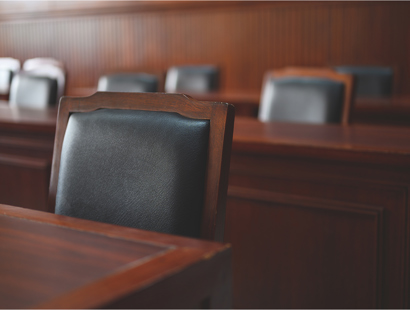
Declarations of Trust: what are they and why enter one?
In this briefing, associate Caitlin Philpott defines declarations of trust, explains their importance and outlines who they are for and when best to make one.
Before considering declarations of trust it is helpful to review the different types of property ownership. Legal ownership is reflected in the title register to a property; the registered proprietors are the legal owners. The beneficial owners, however, are the people with a financial interest in the property and who will receive the proceeds if the property is sold. The legal owners hold the property on trust for the beneficial owners; these could be the same people so that they hold the property on trust for themselves, but this is not always the case. Beneficial owners can own a property as joint tenants (i.e. together they own the entire property) or as tenants in common (i.e. they each own distinct shares, which can be equal or unequal).
What are declarations of trust?
A declaration of trust at its most basic is an express statement of how a property is owned which confirms who the legal owners are, who they hold the property on trust for (i.e. the beneficial owners) and in what proportions.
In addition to this a declaration of trust can record the owners’ agreement regarding payment of the mortgage or outgoings on the property, responsibility for repairs and maintenance, or occupation of the property. It can also make provision for the property to be sold if the owners no longer wish to own it together and set out how this is to be dealt with. Declarations of trust are bespoke documents and can be as detailed as the parties consider will be useful.
Why should you enter a declaration of trust?
From a legal perspective, declarations of trust are important because in the absence of an express statement of the property ownership the presumption is that the beneficial ownership follows the legal ownership. This will not be the case, however, if the legal and beneficial owners are not the same, or if the beneficial interest is held in unequal shares. This may arise, for example, where the owners have made unequal contributions to the purchase price and it is agreed that this should be reflected in the distribution of any net proceeds if the property is sold. In the absence of an express declaration of trust, a person wanting to establish that they have a greater interest in a property than the legal ownership suggests may face an uphill battle, especially if their co-owner disputes their claim. Such disputes may need to be resolved in court and proceedings can be incredibly costly and time-consuming.
Practically speaking, a declaration of trust can provide certainty, not only in respect of the property ownership, but also in terms of providing a record of the ancillary arrangements. In the event of a breakdown in the owners’ relationship it can be helpful to have a formal record of any agreements.
Who are they for?
Declarations of trust can be for anyone who owns property with another person, whether this is a partner, parents or friends. They are particularly important where the owners have different interests in the property.
An important point to note is that a declaration of trust may not be sufficient where the owners are married or in a civil partnership, or where this is in their immediate future. In such cases it may be more appropriate to consider entering a nuptial agreement if it is intended that the property interests should remain protected once the owners’ legal relationship has changed.
When can you make a declaration of trust?
Perhaps the most obvious time to make a declaration of trust is when purchasing a property. Ideally the purchasers would take advice on this relatively early in the conveyancing process so that the paperwork can be prepared while the purchase is ongoing. The declaration of trust can then be completed at the same time as the purchase. The transfer documents may make reference to the declaration of trust to ensure that everything is aligned and scope for uncertainty or ambiguity is minimised.
A declaration of trust may also be entered into following the purchase. This may become necessary where one person has made a subsequent contribution to the property – for example by using a bonus to pay for an extension, or by taking over the mortgage payments – and it is agreed that this should affect the ownership shares. A declaration of trust may also be used to vary an existing declaration of trust if circumstances have changed since it was executed.
Caitlin Philpott is an associate in the family and children team.
Get in touch
If you would like to speak with a member of the team you can contact our family and children solicitors by email, by telephone on +44 (0)20 3826 7520 or complete our enquiry form.









